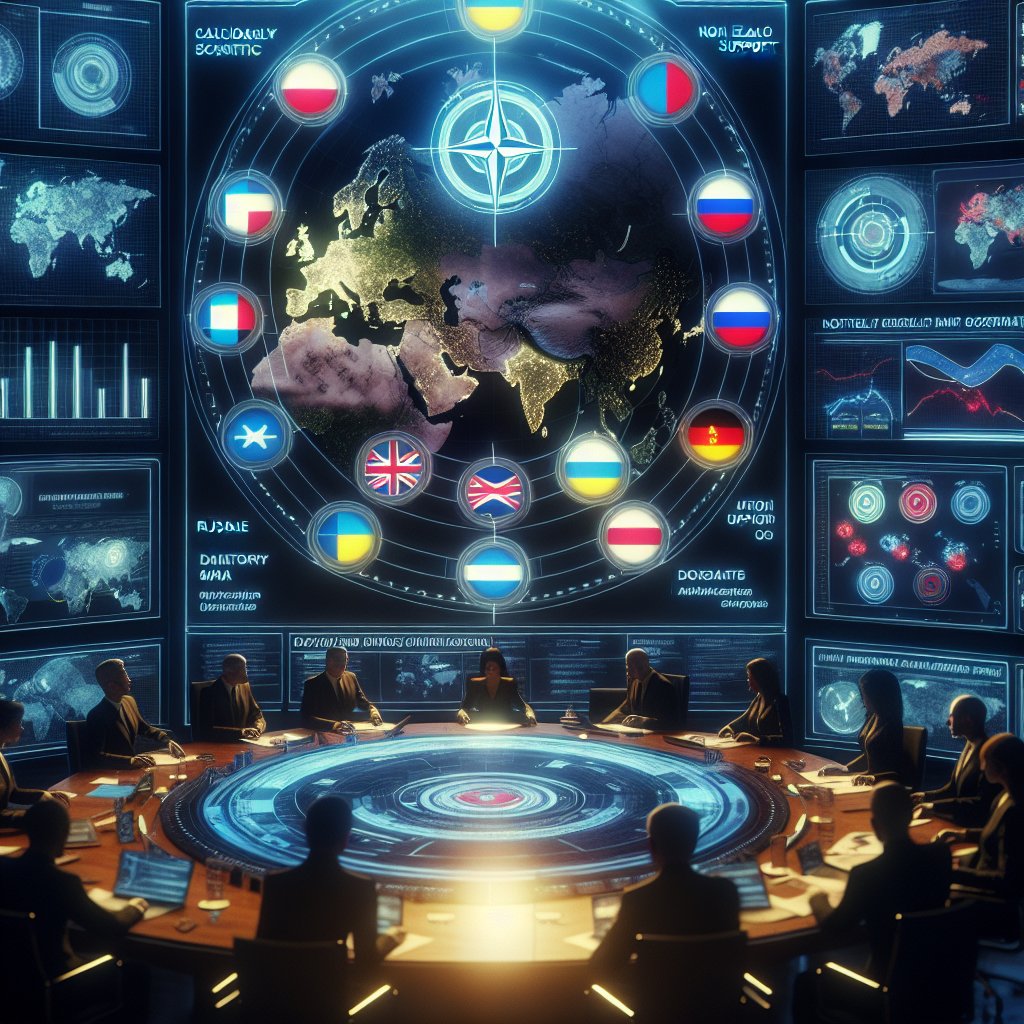Image created by AI
NATO Stands Firm: No Combat Troops to Ukraine Amid Escalating Tensions
As tensions continue to mount in the Russia-Ukraine conflict, NATO Secretary-General Jens Stoltenberg has made it clear that NATO has no intention of escalating the situation by sending combat troops to Ukraine. This statement comes as a direct response to French President Emmanuel Macron's remarks and the ensuing warnings from the Kremlin about the possibility of direct conflict.
On Monday, President Macron suggested while addressing European leaders that though there was no current consensus on sending troops to Ukraine, “nothing can be ruled out.” However, Stoltenberg’s strong rebuttal on Tuesday underlined that no such plans are being considered, putting to rest all speculations raised by Macron's comments.
Despite Russia interpreting Macron’s words as a substantial shift, Stoltenberg emphasized that NATO's support for Ukraine remains solidly within the bounds of non-lethal aid. NATO remains committed to supporting Kyiv's right to self-defense as recognized by international law but will refrain from introducing combat troops into the equation.
The discussion about NATO's role comes at a critical time when Western support, particularly from the US, is perceived to be diminishing, and European leaders like Macron are attempting to reaffirm their position in the fight against Russian aggression. While NATO itself is not directly involved in supplying lethal aid, several individual member countries have provided arms and ammunition to Ukraine on a bilateral basis.
Notably, decisions of this magnitude within NATO would require a unanimous agreement among all member countries – a consensus that currently does not exist. Any shift from non-lethal to combat support would be a significant change in NATO's policy, carrying risks of escalating the conflict to a full-blown war between Russia and NATO.
President Macron’s approach to strategic ambiguity has raised eyebrows, leaving room for interpretations and potential misgivings from the Kremlin, which views the possibility of Western troops on Ukrainian soil as a direct threat. France's Prime Minister, Gabriel Attal, seems to underscore this ambiguity by highlighting the unpredictability inherent in warfare.
Reactions from individual countries have been swift to follow Stoltenberg's lead. Both Poland and the Czech Republic, staunch supporters of Ukraine, have clarified that they are not considering sending troops. Sweden, on the cusp of NATO membership, and Slovakia, under Prime Minister Robert Fico, have also distanced themselves from the prospect.
Given the varying stances of NATO countries and the high stakes involved, it is clear that NATO’s strategy hinges on cautious support, avoiding any action that could be construed as an act of war. This delicate balance aims to deter further aggression without sparking a larger international military conflict.
As the Ukraine crisis persists, the international community remains on edge, keeping close watch over NATO’s maneuvers. The alliance's current stance serves as a bulwark against a potential escalation, while it continues to lend Ukraine the support necessary to uphold its sovereignty and territorial integrity in the face of unrelenting aggression from Russia.










